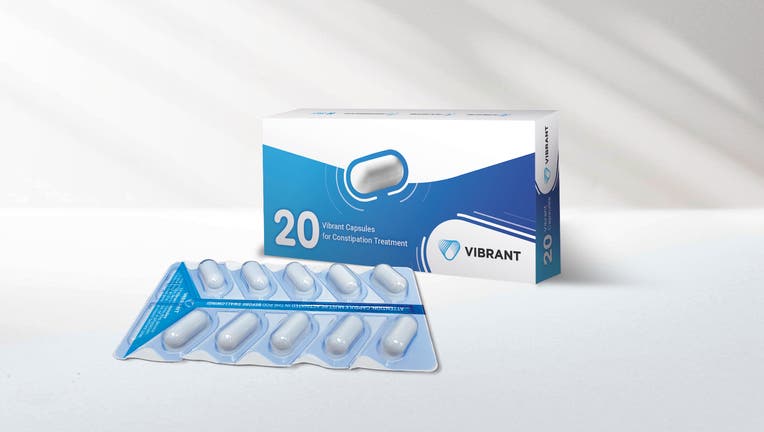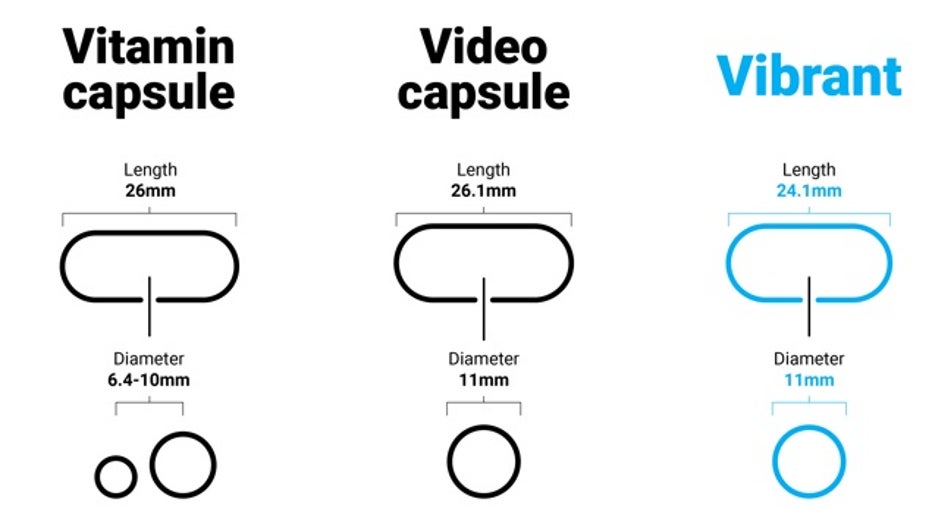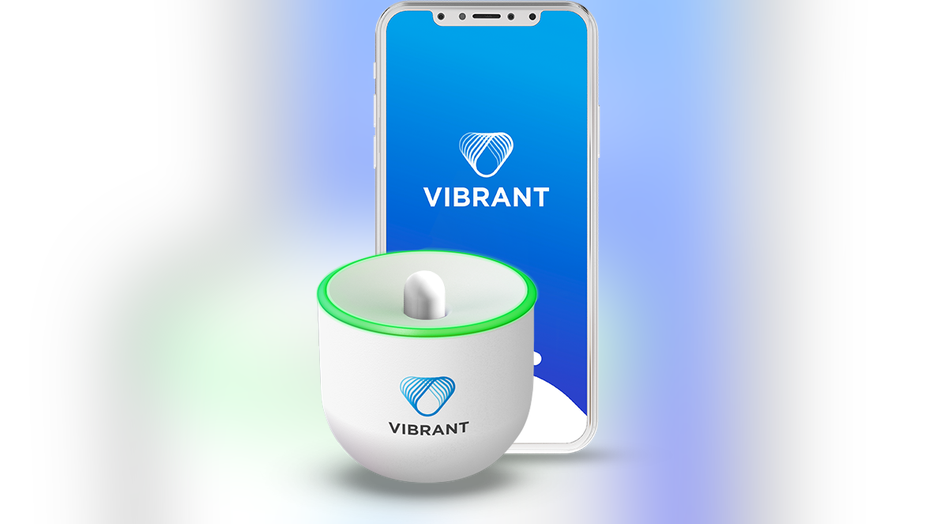New vibrating, drug-free pill may help chronic constipation

Vibrant (Vibrant Gastro)
A first-of-its-kind, drug-free pill designed to "gently" vibrate in the colon may help squeeze food through the gut of chronically constipated people.
The pill, aptly named Vibrant, was approved by the U.S. Food and Drug Administration in August 2022, but prescriptions weren’t available until recently.
According to drugmaker Vibrant Gastro, about 40% of people in clinical trials had at least one more bowel movement per week after taking the vibrating pill, while 23% reported two or more additional bowel movements.
READ MORE: How to achieve ‘Super Bowels’ on Super Bowl Sunday and beyond
How does Vibrant work?
Vibrant is made to simulate specialized nerve cells in the gut, the drugmaker told FOX TV Stations. Those cells help with peristalsis, or the muscle contractions that help to squeeze food through.

(Vibrant Gastro)
People taking Vibrant will get a capsule from their pill pack and place it in an "activation pod," then wait for the green light and swallow with a glass of water. The "pre-programmed timing of the mechanical stimulation" reportedly improves natural movement in the colon by "leveraging its biological clock."
READ MORE: Revitalizing old blood with anti-inflammatory drug could slow aging, study suggests
A company spokesperson said the idea stems from external mechanical assistance that already exists, like wearable mechanical belts, for example.
"But their efficacy is limited, so the idea was how to make it more effective. The idea was to provide focused mechanical stimulation where the problem is, the colon," the company said.
READ MORE: Frequently taking sleeping pills could increase risk of dementia, study says
The capsules are made of a medical-grade material named Macrolon, which is also used to make pill cameras for gastroenterologists.
They're expelled just like vitamin and other capsules and end up in the sewage.
What are the risks?
About 11% of people in clinical trials said they felt the vibration, but none of them stopped the trials because of the sensation, the company said.

(Vibrant Gastro)
Potential side effects listed for the pill are abdominal pain or discomfort, abdominal distension, vomiting, nausea, blood in stool, diarrhea, flatulence and proctalgia.
In rare cases, obstruction can happen. Diarrhea was reported in 1.2% of people in Phase 3 clinical trials.
READ MORE: New Alzheimer's drug: What to know as Leqembi hits the market
Vibrant shouldn’t be prescribed to people with the following:
- History of complicated/obstructive diverticular disease
- History of intestinal or colonic obstruction, or suspected intestinal obstruction
- Clinical evidence of current and significant gastroparesis
- History of significant gastrointestinal disorder, including any form of inflammatory bowel disease or gastrointestinal malignancy (celiac disease is accepted if the subject has been treated and is in remission), and/or anal fissures and fistulas
- History of Zenker’s diverticulum, dysphagia, esophageal stricture, eosinophilic esophagitis or achalasiaWomen who are pregnant or lactating
How much does Vibrant cost?
The vibrating pill will cost you $89 a month, the company said, though they’re working with insurance companies to get coverage in commercial plans.
READ MORE: Cheaper, over-the-counter hearing aids now available in US stores
Once that happens, the cost would be $69 a month.
What’s considered chronic constipation?
Constipation is typically defined as having fewer than three bowel movements a week, according to the Mayo Clinic. Chronic constipation occurs when infrequent bowel movements or difficulty passing stools persists for several weeks or longer.
Doctors say it’s normal to have occasional constipation, but consistent constipation can interfere with daily life and cause you to strain when trying to pass stools.

